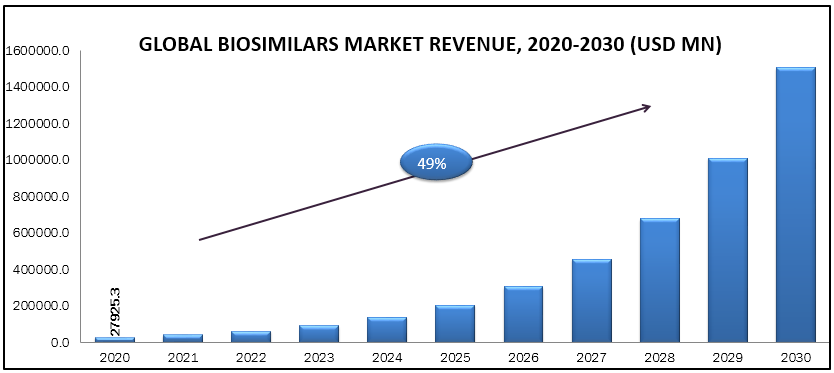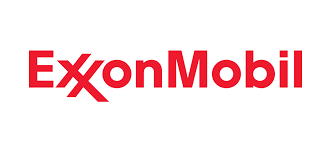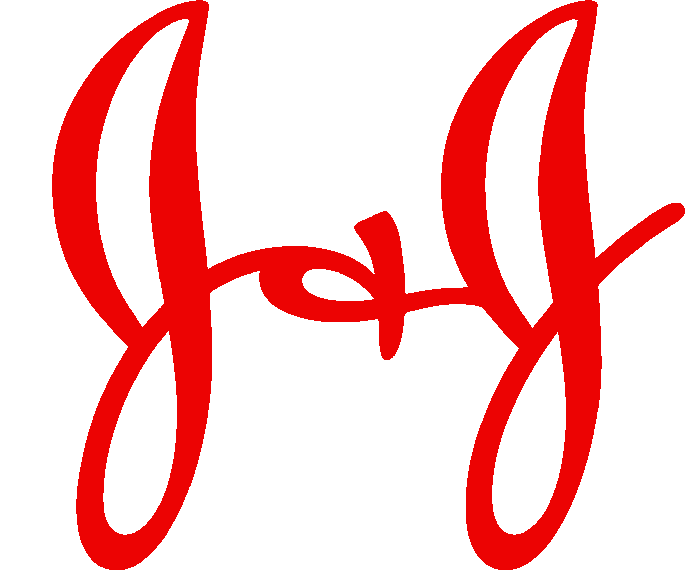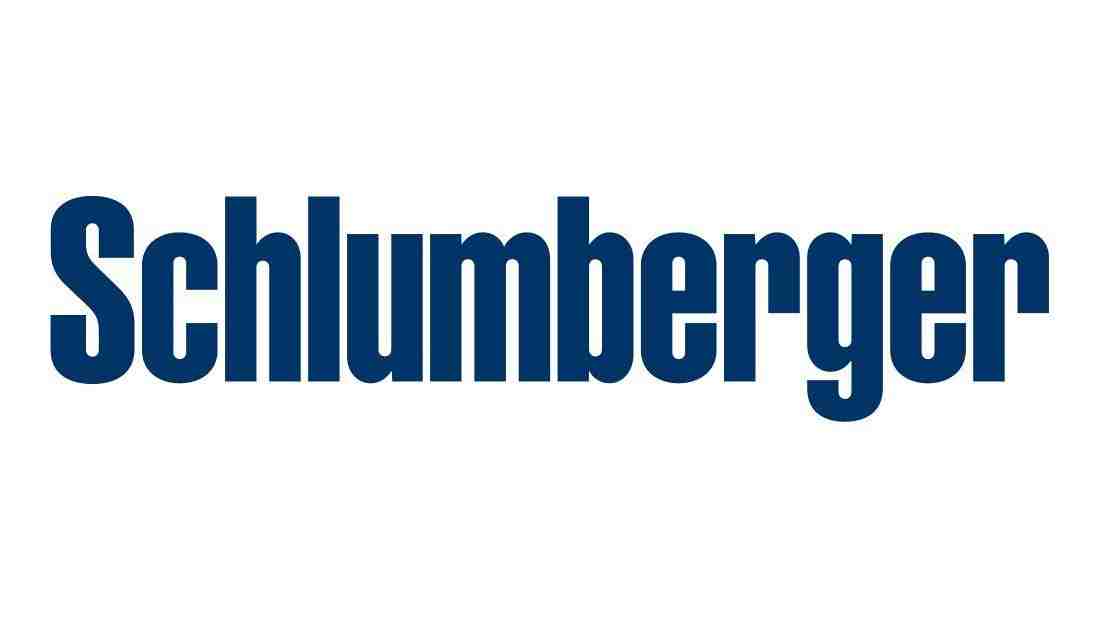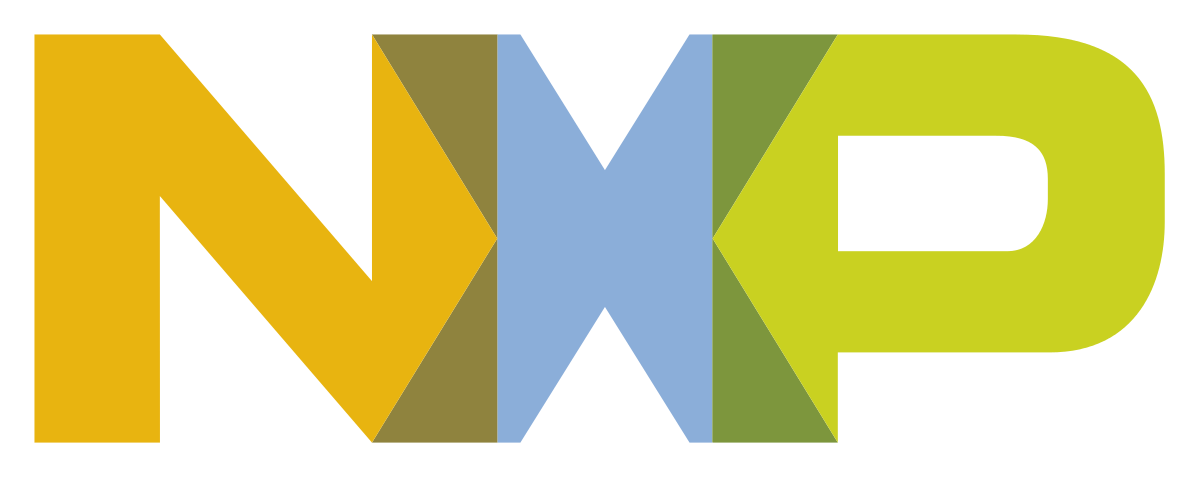Biosimilars Market was valued at USD 27425.3 billion in 2020 and is expected to be valued at USD 1506124.8 billion by 2030, with an approximate CAGR of 49% during the forecasted period.A biosimilar, which is also known as biologic is an official version of the original "innovator" product that is similar to another already approved biological medicine. Biosimilars are approved drugs that have the same standards of pharmaceutical quality, safety and efficacy that apply to all biological medicines. Biosimilars are generally manufactured when the original medicine patent gets expired or about to expire. These newly developed drugs are less expensive in comparison to the original drugs and may have minor differences in clinically inactive components. Biosimilars are mostly used for the treatment of areas such as oncology, diabetes, and others. These drugs have a favorable market growth due to the rise in the geriatric population, rising of chronic diseases and approval by government authorities.
Market Segmentation:
The global biosimilar market is segmented by product into insulin, interferon, etanercept, infliximab, rituximab, glucagon, and calcitonin. By the type of manufacturing, the biosimilars market is divided into in-house manufacturing and contract manufacturing. Based on the indication, the biosimilars market is bifurcated into oncology, chronic diseases, autoimmune diseases, blood disorders, and growth hormone deficiency. By geography, the biosimilars market is bifurcated into, North America, Asia Pacific, Europe, and the ROW.
Market Dynamics and Factors:
Owing to the growing demand for pharmaceutical drugs, the expiration of major patents drugs are the factors that are driving the market. However, market growth is restraint due to the high cost of reference products and reimbursement service providers. Reasonable return of investment with the continued attractiveness of R&D investment in new medicines development will allow the growth of the market. Furthermore, the biosimilar market growth will be a challenge due to the lack of regulatory guidelines, consumers brand preferences, the reluctance of physicians to prescribed biosimilars and the high capital required for research and development.
Geographic Analysis:
North America accounted for the largest share in terms of the revenue, accounting for approximately 30% of the global market, in 2019. The growth in this region is mainly driven by the presence of many large research laboratories, such as Sandoz, Amgen, Teva Pharmaceutical, and others. According to a research study, about 40 biosimilars are under development, which includes approximately 20 biosimilars ready to be released in market, and a noteworthy number of biosimilars are in the pipeline. Attributed to the immense economic developments and growing biotechnology companies in the region, Asia-Pacific is also expected to record robust growth over the forecast period. Additionally, factors such as high demand for the low-cost therapeutics and treatments, increase in R&D expenditures by the market players in the emerging economies such as India, South Korea, and China, and high prevalence and incidence of various chronic diseases, are also propelling the growth of biosimilars market in the Asia Pacific region.
Competitive Scenario:
Some of the major players of the market include Pfizer Inc., Sandoz International GmbH, Biocon Ltd., Dr. Reddy’s Laboratories Ltd., Amgen Inc., Teva Pharmaceuticals Inc., Celltrion Inc., Samsung Bioepis, Samsung Biologics, Gan & Lee Pharmaceuticals, and Gedeon Richter.
Biosimilars Market Report Scope
| Report Attribute | Details |
| Analysis Period | 2020–2030 |
| Base Year | 2021 |
| Forecast Period | 2022–2030 |
| Market Size Estimation | Billion (USD) |
| Growth Rate (CAGR%) | 49 % |
|
| By Product (Insulin, Interferon, Etanercept, Infliximab, Rituximab, Glucagon, and Calcitonin), By Application (Oncology, Chronic Disease, Blood Disorder, Autoimmune Disease, and Growth Hormone Deficiency) |
| Geographical Segmentation | North America (U.S., Canada, Mexico) Europe (UK, Germany, Italy, France, Rest of Europe), Asia-Pacific (China, Japan, India, Australia, Rest of APAC), South America (Brazil, Argentina, Rest of SA), MEA (UAE, Saudi Arabia, South Africa) |
| Key Companies Profiled | Pfizer Inc., Sandoz International GmbH, Biocon Ltd., Dr. Reddy’s Laboratories Ltd., Amgen Inc., Teva Pharmaceuticals Inc., Celltrion Inc., Samsung Bioepis, Samsung Biologics, Gan & Lee Pharmaceuticals, and Gedeon Richter. |
